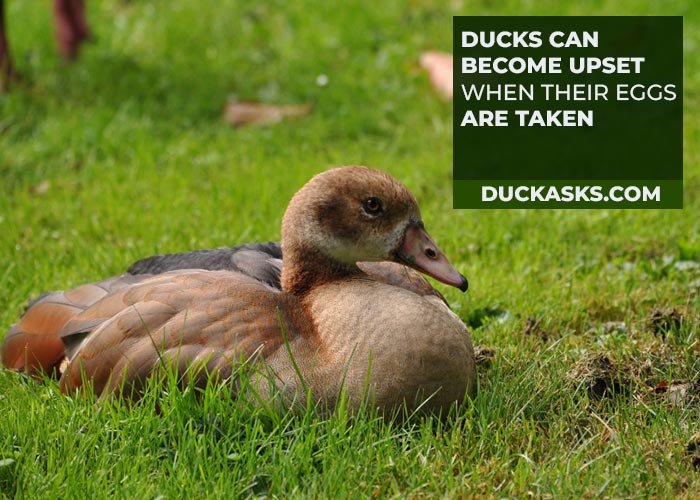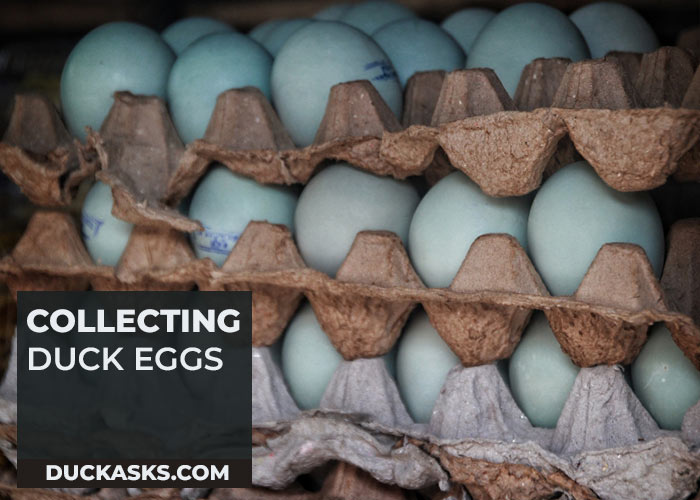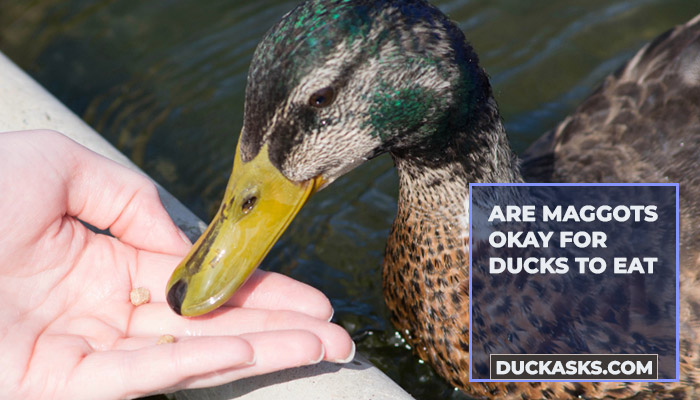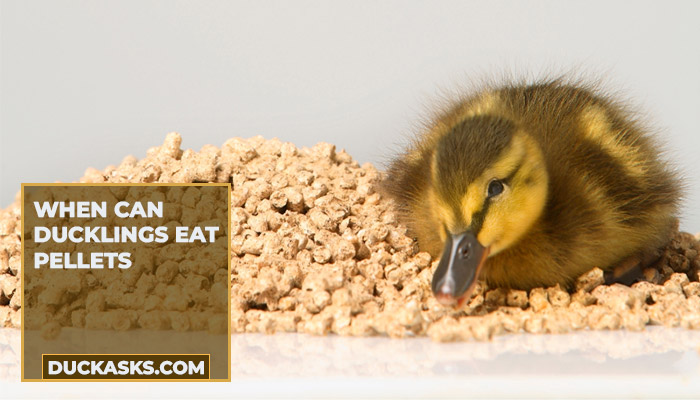Are Ducks Upset If You Take Their Eggs?
I used to watch videos of ducks chasing random people in the streets. It’s hilarious, not going to lie, but ducks become intensely fierce and defensive when you go near their eggs or try to take their eggs. So, you may ask, are ducks upset if you take their eggs?
Well, of course, they are! If they are broody, then they have every right to be depressed and despondent as you are taking their eggs against their will. So, it’s better to leave the eggs alone because once you meddle with them, the ducks may not sit on them again in fear of assault or other emotional conflicts.
Also, sometimes people try to move the nest, which is also a bad practice that causes extreme fatigue to the ducks. However, you can move the eggs or the nest in certain circumstances. To understand these events better, I have curated an in-depth article for you. Let’s get started!
Want to learn more about duck behaviors:
Why Ducks Get Upset When You Take Their Eggs?
Like many other animals, ducks can become upset when their eggs are taken because they have a strong instinct to protect and care for their offspring. This is known as parental care, and it is a behavior that is seen in many different species of animals.

Let’s wade through some of the key reasons why ducks get upset when their babies are taken.
01. They Invest Their Time and Resources
When ducks lay eggs, they invest a significant amount of time, energy, and resources into the process. This includes building nests, incubating the eggs, and caring for the chicks once they hatch.
The eggs are a vital part of this process, as they represent the potential for future offspring and the continuation of the species.
As a result, ducks have a natural inclination to protect and care for their eggs, and taking them can be seen as a threat to their future reproductive success.
02. Growing Attachment
In addition to this instinctual drive, ducks may also form a bond with their eggs, similar to how humans may form a bond with their children. This bond can be based on the duck’s perception of the eggs as a representation of themselves and their own genetic line.
When the eggs are taken, it can be perceived as a violation of this bond, causing distress.
03. Sensing Threat
Furthermore, ducks can also become upset when their eggs are taken because they may feel a sense of territoriality over their nest and the surrounding area.
This territorial behavior is another common instinctual drive-in animal, and it serves to protect the resources and space they need to survive and reproduce. When someone or something invades that space, ducks may feel threatened and become upset or aggressive in response.
In summary, Ducks can become upset when their eggs are taken because they have a strong instinct to protect and care for their offspring, a bond with the eggs, and a sense of territoriality over their nest.
All of these behaviors and emotions are closely tied to the duck’s ability to reproduce and ensure the survival of its species. Considering these natural behaviors when interacting with wild ducks and their eggs is important.
What Happens If You Touch a Duck Egg?
When the duck eggs come in contact with your hands, there are a few things that could happen. The first thing to consider is whether the egg is fertilized or not.
01. Fertilized Eggs
A fertilized egg has been fertilized by a male duck and has the potential to develop into a duckling.

If the egg is fertilized, there is a chance that the touch could damage the egg and affect the development of the duckling. The eggshell is relatively delicate and can be easily cracked or broken.
Additionally, the touch could introduce bacteria or other harmful organisms into the egg, which could also harm the development of the duckling. Therefore, it is best to handle fertilized duck eggs with care and avoid touching them if possible.
02. Unfertilized Eggs
An infertile egg will not develop into a duckling. And since the egg is unfertilized, there is no risk of damaging the egg or harming the development of a duckling.
However, it is still best to handle the egg with care as it could still be cracked or broken if handled roughly.

Additionally, if the egg is intended for consumption, it is best to avoid touching it as it could introduce bacteria or other harmful organisms into the egg. In case you dont know, bacteria including salmonella can pentrate egg shells and associated membranes. It may also lead to cross-contamination in the hatchery.
Note That: In general, the best course of action will be to avoid touching duck eggs if possible. However, if you must handle them try to do so with care and to clean your hands thoroughly before and after handling the eggs.
Besides, make sure to store and handle the eggs in a clean and safe environment to prevent contamination and ensure the safety of the eggs for consumption or the potential development of a duckling.
Is It Safe to Move Duck Eggs?
Moving duck eggs can be done safely if certain precautions are taken to ensure the safety and well-being of the eggs during transport.
Firstly, it is important to ensure that the eggs are handled with care and not subjected to rough handling or extreme temperatures. This means that the eggs should be kept in a secure, insulated container and should not be exposed to temperatures above or below the ideal range for hatching.
Secondly, make sure that the eggs are not turned during transport, as turning can cause the embryo to become disoriented and may lead to poor hatchability.
To prevent this, the eggs should be placed in a container with a suitable lining, such as a foam pad or bubble wrap, to cushion them during transit.
Thirdly, it is crucial to ensure that the eggs are transported in a manner that minimizes movement and vibration. If the eggs are transported in a vehicle, they should be placed in an area that is protected from direct sunlight and not subjected to any rough or unstable terrain.
Lastly, remember to ensure that the eggs are checked regularly to ensure that there is no leakage or cracking that may compromise the well-being of the embryos. Any eggs that show signs of leakage or cracking should be removed immediately.
What Happens If You Move Duck Eggs?
Moving duck eggs can have several potential consequences, depending on the circumstances surrounding the move.
01. Hindrance in the Incubation Process
One of the most significant potential issues is the possible disruption of the duck’s incubation process. Ducks are known to be very attentive and dedicated parents, and they will often spend long periods sitting on their eggs to keep them warm and properly incubated.
Suppose the eggs are moved, the duck may be unable to return to them and may abandon the nest. And this can lead to the eggs not hatching or the ducklings may not survive.
02. Damaging the Eggs

Another potential issue is that moving the eggs can cause them to become damaged. Ducks’ eggs are relatively delicate and can be easily cracked or broken if they are mishandled or moved too frequently.
03. Stressing the Mother
One of the most common consequences of moving duck eggs is that it can cause stress to the mother duck. As mentioned earlier, ducks are highly territorial animals, and they may become aggressive or defensive if they feel that their eggs or young are being threatened.
This can lead to the mother duck attacking anyone approaching the nest, which can be dangerous for the duck and the person trying to move the eggs.
04. Exceptions
In some circumstances moving duck eggs can be a necessary and beneficial action. For example, if a duck nest is located in an unsafe area, such as a busy street or busy park, moving the eggs to a safer location can greatly increase the chances of the ducklings surviving.
Similarly, if a duck nest is located in an area that is prone to flooding or other natural disasters, moving the eggs to a safer location can also greatly increase the chances of the ducklings surviving.
Are Ducks Upset When They Go Broody?
Yes, as you already know, broody is a poultry slang used for ducks who have just entered their reproductive cycle. During this period, both mental and physical transitions are noticed. Moreover, ducks undergo massive hormonal and psychological changes during their early reproductive stage.

They become very moody, throw a lot of tantrums, and become extremely defensive toward their nests. That’s why when they go broody, they will be seen upset. And during this period, they will become fierce and aggressive if you try to go near their nest or mess with their eggs.
Not just that, a broody duck goes through a lot of stress due to hormonal changes, and with the attachment issues in hand, they feel a profound sense of loss when the eggs go missing.
How Can I Tell If My Ducks Are Broody?
There are several signs to indicate that a duck is a broody, and it can help you determine if your duck is ready to hatch eggs.
01. Behavioral change
One of the most obvious signs of a broody duck is a behavior change. A broody duck will become very territorial and protective of her nest. She will stay in her nest for long periods and may even become aggressive if she feels her nest is being threatened.
Besides, she may also puff up her feathers and make a low, growling noise when she feels threatened.
02. Becoming Physically Languid
Another sign of a broody duck is a decrease in her activity level. A broody duck will spend less time foraging for food and more time sitting on her nest. She may also stop laying eggs, as all her energy is focused on incubating her eggs.
03. Bodily Changes
Physical changes in a duck’s body can also indicate brooding behavior.
A broody duck’s feather around the vent may appear fluffed up and ruffled, as well as looking more fluffy around the tail area. Additionally, a broody duck’s belly will appear more distended due to her eggs.
To conclude, a broody duck’s eggs will be warmer than normal eggs when you pick them up. This is because the duck’s body heat is being transferred to the eggs, keeping them at the right temperature for incubation.
If you notice these signs in your duck, she is likely broody and ready to hatch her eggs.
How to Collect Duck Eggs?
Collecting duck eggs can be a fun and rewarding experience, but it’s important to handle the eggs carefully to ensure they are safe to eat.

Here are a few tips on how to collect duck eggs:
- Wait until the ducks have laid their eggs in the morning before collecting them. This will ensure that the eggs are clean and haven’t been sitting out for too long.
- Use a basket or container designed to collect eggs to avoid cracking.
- Gently lift the eggs from the nest. Be careful not to roll or drop them, as this can cause cracks.
- Check each egg for cracks or defects. Discard any eggs that are cracked or have abnormalities.
- Carefully clean the eggs with a dry cloth or an egg-cleaning solution. Be sure to remove any dirt or debris from the eggs.
- Store the eggs in a cool, dry place. Duck eggs can be stored at room temperature for up to one week, but they will keep longer if stored in the refrigerator.
- When you are ready to use the eggs, it is important to check their freshness. You can do so by placing them in a bowl of water. If the eggs stand up, they are fresh.
When the eggs lie on their side, they are still good to use but should be used soon. On the fip side, if the eggs float, they are no longer fresh and should be discarded.
It’s also worth noting that a different breed of duck may have a different laying schedule; it’s important to know the breed you are raising to have a general idea of when and how many eggs you can collect daily.
Additionally, if you are planning on raising ducks for eggs, it’s a good idea to consult a local poultry expert or a veterinarian to ensure that you provide the best care for your ducks and their eggs.
What to Do If You Find a Duck Egg on the Ground?
If you come across a duck egg on the ground, there are a few things you can do to ensure the safety and survival of the egg.
- First, it’s important to determine if the egg is still viable. If the egg is cracked or broken, likely, it is no longer suitable for incubation. However, if the egg appears to be in good condition, you can proceed to the next steps.
- Next, you should try to locate the nest from which the egg came. If you can find the nest, you can gently place the egg back in its original location. In case the nest is not in a safe location, such as in a busy area or near a body of water, it may be best to move the nest to a safer location nearby.
- If you are unable to locate the nest, or if the nest is not suitable for the egg, you can consider incubating the egg yourself. You will need an incubator and some knowledge of how to properly care for duck eggs.
This can include maintaining the proper temperature and humidity levels, as well as turning the egg regularly.
End Quote
Again, if you are asking- are ducks upset if you take their eggs? Then I will say that It’s natural for any animal to be stressed when someone is trying to snatch their offspring from them.
And it’s important for us to fathom the consequences of our actions and consider the well-being of all living beings.
That said, if you still have some queries or want to know more about ducks, then feel free to join us through our social media platforms. Find us on Twitter, Facebook, and Pinterest.






